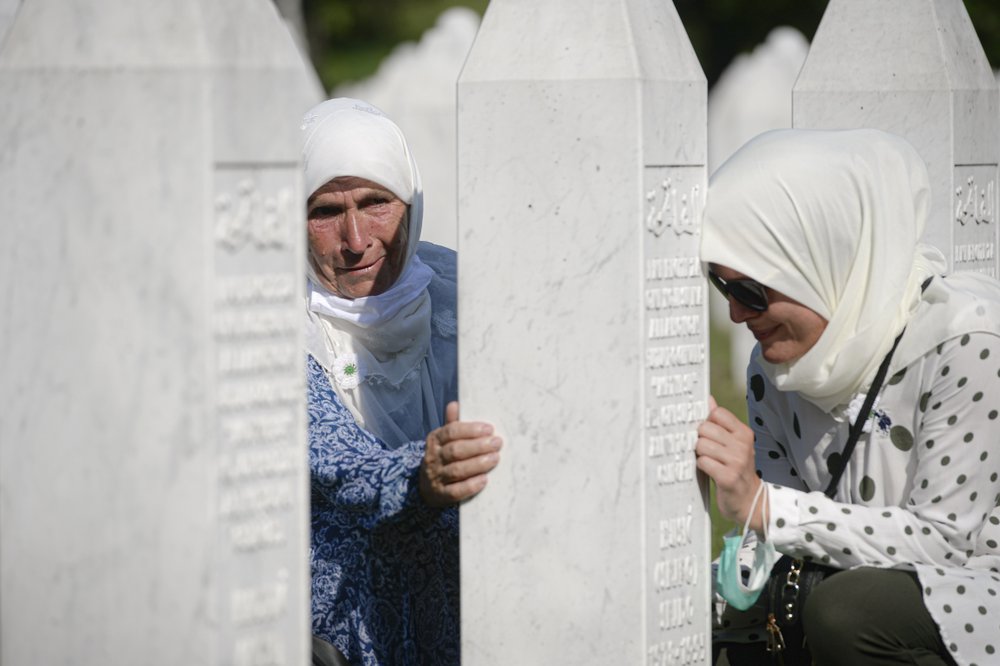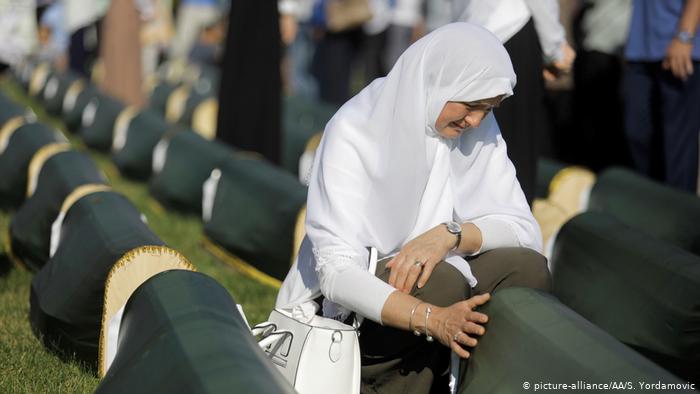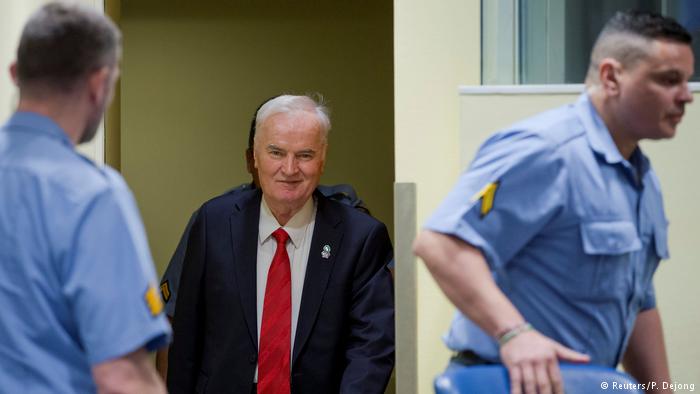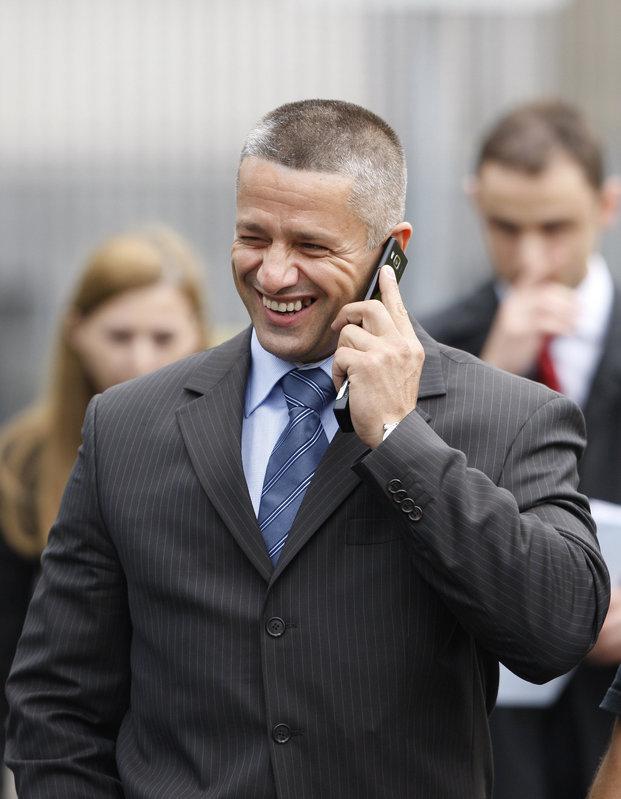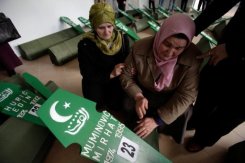
SARAJEVO, Bosnia-Herzegovina — On the 17th anniversary of Europe's worst massacre since World War II, Muslims in Bosnia are heading to Srebrenica to attend a funeral for 520 newly identified victims.
The remains of those Muslim men and boys slaughtered at Srebrenica around 11 July 1995, will be laid to rest Wednesday in the town whose name is now synonymous with genocide. The coffins are already at the memorial center and the burial pits have been dug.
Ambulances were also standing ready to help those among the tens of thousands for whom the event will be too much to handle.
Rabija Hrustanovic found the remains of her husband and brother among the sea of simple green coffins waiting to be buried.
"I want to lay down next to them and stay here forever," she said before breaking into tears.
Srebrenica was a UN-protected Muslim town in Bosnia besieged by Serb forces throughout Bosnia's 1992–95 war. Serb troops led by General Ratko Mladic overran the enclave in July 1995, separated men from women and executed 8,000 men and boys within just a few days. Dutch troops stationed in Srebrenica as UN peacekeepers were undermanned and outgunned, and failed to intervene.
The bodies of the victims are still being found in mass graves throughout eastern Bosnia. The task has been made even more difficult by the fact that the perpetrators dug up mass graves and reburied remains in other mass graves to try to cover their tracks. The victims have been identified through DNA analysis and newly identified ones are buried at the Srebrenica memorial center every year.
So far, over 5,000 Srebrenica victims found this way have been laid to rest.
Mladic was arrested last year in Serbia and is on trial now at the tribunal in The Hague. He faces 11 charges, including genocide, for allegedly masterminding Serb atrocities throughout the war that left 100,000 dead, especially the Srebrenica massacre. He denies wrongdoing.
But despite the charges, to many Serbs Mladic remains a national hero.
"Serbs believe he is an honorable and fair man," said Bosnian Serb Novica Kapuran from the town of Pale, near Sarajevo. "He is being blamed for something he has not done."
That attitude angers Muslim Bosniaks.
But Holocaust survivor Rabbi Arthur Schneier of the Park East Synagogue in New York, who came to attend the funeral in solidarity with the victim's families, told The Associated Press that Bosnian witnesses should simply continue testifying and keeping a record.
Schneier said he knows from dealing with Holocaust deniers that "to the advocates of a revisionist history, you cannot even present the facts, because they will not accept them."
The rabbi urged the world to stand up in the face of injustice, "hear the cry of the oppressed and to respond."
"Silence on the part of the international community … only strengthens the perpetrators," he said.
In Washington, President Barack Obama issued a statement honoring the memory of the "8,000 innocent men and boys" who were massacred in Srebrenica 17 years ago.
"The name Srebrenica will forever be associated with some of the darkest acts of the 20th century," Obama said.
Obama said the US "rejects efforts to distort the scope of this atrocity, rationalize the motivations behind it, blame the victims, and deny the indisputable fact that it was genocide."

